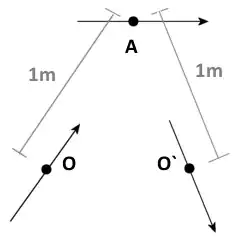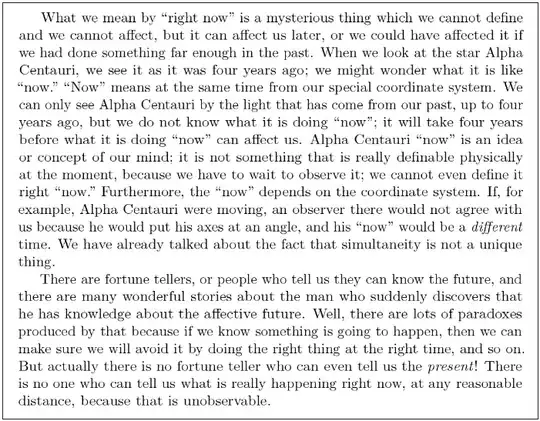The Help Center recommends I 'fix' this question:
(original question)
"It seems self-evident that everything exist in the Now. Notwithstanding time-dilation and different rates of the passage of time and entropy, doesn't this all still happen in the same universal moment?"
This question was asked with a rusty but apparently adequate awareness of special relativity. However, it may have been mistaken to assume that 'presentism' only refers to the present. There is a fuller definition according to this article:
Is There an Alternative to the Block Universe View?
If one can talk about a widely (explicitly or implicitly) accepted view on reality it is presentism – the view that it is only the present (the three- dimensional world at the moment `now') that exists. This common-sense view, which reflects the way we perceive the world, has two defining features: (i) the world exists only at the constantly changing present moment (past and future do not exist) and (ii) the world is three-dimensional.
According to special relativity the universe is four-dimensional, so presentism in this form is ruled out.
Nevertheless isn't the present universal? For example, regardless of the the observers' frames in the diagram below, they see event A at the same time, say, at t[0] = "the present".
The exception to this post-relativistic presentism comes only from the realms of time-travel, which would permit the past and the present to coexist. Most speculative, of course.
So is this question on presentism correct? (If not blindingly obviously so.)
Addendum
The following quote from "The Feynman Lectures on Physics, Vol. I, 17-3 Past, present and future" illustrates why the answer might be less than obvious. However, just because the present may be unobservable does not mean it does not exist. As far as I am aware, it does. It seems some physicists discount its existence because it is unobservable, which may be the reason for the confusion.

